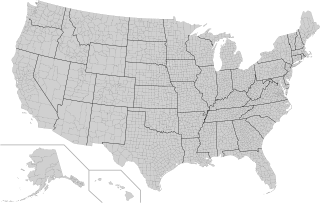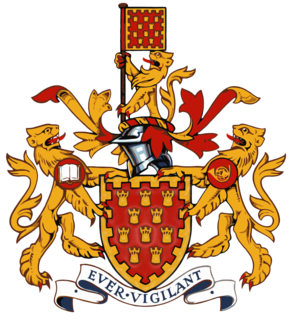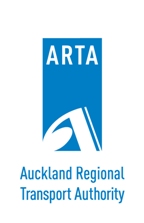
The Federal Energy Regulatory Commission (FERC) is the United States federal agency that regulates the transmission and wholesale sale of electricity and natural gas in interstate commerce and regulates the transportation of oil by pipeline in interstate commerce. FERC also reviews proposals to build interstate natural gas pipelines, natural gas storage projects, and liquefied natural gas (LNG) terminals, in addition to licensing non-federal hydropower projects.

In the United States, a county is an administrative or political subdivision of a state that consists of a geographic region with specific boundaries and usually some level of governmental authority. The term "county" is used in 48 U.S. states, while Louisiana and Alaska have functionally equivalent subdivisions called parishes and boroughs, respectively.

Ontario Hydro, established in 1906 as the Hydro-Electric Power Commission of Ontario, was a publicly owned electricity utility in the Province of Ontario. It was formed to build transmission lines to supply municipal utilities with electricity generated by private companies already operating at Niagara Falls, and soon developed its own generation resources by buying private generation stations and becoming a major designer and builder of new stations. As most of the readily developed hydroelectric sites became exploited, the corporation expanded into building coal-fired generation and then nuclear-powered facilities. Renamed as "Ontario Hydro" in 1974, by the 1990s it had become one of the largest, fully integrated electricity corporations in North America.
Build–operate–transfer (BOT) or build–own–operate–transfer (BOOT) is a form of project financing, wherein a private entity receives a concession from the private or public sector to finance, design, construct, own, and operate a facility stated in the concession contract. This enables the project proponent to recover its investment, operating and maintenance expenses in the project.
The Federal Power Act is a law appearing in Chapter 12 of Title 16 of the United States Code, entitled "Federal Regulation and Development of Power". Enacted as the Federal Water Power Act on June 10, 1920, and amended many times since, its original purpose was to more effectively coordinate the development of hydroelectric projects in the United States. Representative John J. Esch (R-Wisconsin) was the sponsor. Prior to this time and despite federal control of navigable waters and the necessary congressional approval to construct such facilities, Congress had left the regulation of hydroelectric power to the individual states. The first federal legislation broadly dealing with hydroelectric development regarded its competition with navigation usage; with the passage of the Rivers and Harbors Act of 1899 Congress made it illegal to dam navigable streams without a license from them. Until 1903, these congressional permits were given away on a 'first come first served' perpetual basis and controlled by the individual states. This would lead to a long debate between competing private and public development interests, and culminate in the act's passage in 1920.

The Greater Manchester County Council (GMCC) was the top-tier local government administrative body for Greater Manchester from 1974 to 1986. A strategic authority, with responsibilities for public transport, planning, emergency services and waste disposal, it was composed of 106 members drawn from the ten metropolitan boroughs of Greater Manchester. The Greater Manchester County Council shared power with ten lower-tier district councils, each of which directed local matters. It was also known as the Greater Manchester Council (GMC) and the Greater Manchester Metropolitan County Council (GMMCC).
The State Rail Authority, a former statutory authority of the Government of New South Wales, was responsible for the operation and maintenance of railways in the Australian state of New South Wales from July 1980 until December 2003.

In Ireland, local government functions are mostly exercised by thirty-one local authorities, termed County, City, or City and County Councils. The principal decision-making body in each of the thirty-one local authorities is composed of the members of the council, elected by universal franchise in local elections every five years. Irish Local Authorities are the closest and most accessible form of Government to people in their local community. Many of the authorities' statutory functions are, however, the responsibility of ministerially appointed career officials termed Chief executives. The competencies of the city and county councils include planning, transport infrastructure, sanitary services, public safety and the provision of public libraries.

Long Island Power Authority, commonly abbreviated as LIPA ("lie-pah"), is a municipal subdivision of the State of New York that owns the electric transmission and electric distribution system serving all Long Island and a portion of New York City known as the Rockaways. LIPA was originally created under the Long Island Power Act of 1985 to acquire the Long Island Lighting Company (LILCO)'s electric and natural gas infrastructure after the cancellation of the Shoreham Nuclear Power Plant. LIPA acquired LILCO's transmission system in May 1998, while the remainder of LILCO's natural gas-related infrastructure merged with Brooklyn Union Gas to form KeySpan Energy.

The Auckland Regional Transport Authority (ARTA) was the central co-ordinating agency for transport in the Auckland Region of New Zealand from 2004 to 2010. In this role, ARTA provided public transport services, assigned funding and subsidies, and organised and advised on many aspects of regionwide transport. ARTA was under the control of the Auckland Regional Council (ARC) and was replaced by Auckland Transport on 1 November 2010.

Enterprise plc was a support services company originally based in Farington in Lancashire, England. Its core markets were local authorities and utility sectors. It has recently been integrated into Ferrovial's UK company, Amey plc.

The Connecticut Military Department is a state agency of the government of Connecticut. Its primary components are the Connecticut Army National Guard, the Connecticut Air National Guard, and four companies of the state militia. The Military Department of the State of Connecticut traces its origins to May 11, 1637, when the "General Courts" established a military arm of the provincial government. In 1939, the State's Military Department. was established to consolidate the offices of Adjutant General, Quartermaster General, Armory Board, and Armory Board Inspector.

The Outback Communities Authority (OCA) is a statutory authority in South Australia (SA) created under the Outback Communities Act 2009. It has been established to "manage the provision of public services and facilities to outback communities" which are widely dispersed across the Pastoral Unincorporated Area which covers almost 60% of South Australia's land area. The authority has its seat at both Port Augusta which is located outside the unincorporated area and at Andamooka. The authority serves an area of 624,339 square kilometres which has a population of 3,750 of whom 639 are Indigenous Australians and includes several large pastoral leases and mining operations.
The government of Indianapolis is a mayor-council, consolidated city-county system. The executive branch is headed by the elected mayor, and the legislative branch is made up of the 25-member City-County Council. Indianapolis and Marion County have a consolidated government known as Unigov. Most government offices are located in the City-County Building.
In the United Kingdom, byelaws are laws of local or limited application made by local councils or other bodies, using powers granted by an Act of Parliament, and so are a form of delegated legislation. Some byelaws are made by private companies or charities that exercise public or semi-public functions, such as airport operators, water companies or the National Trust.
An electric utility is a company in the electric power industry that engages in electricity generation and distribution of electricity for sale generally in a regulated market. The electrical utility industry is a major provider of energy in most countries.

The Financial Conduct Authority (FCA) is a financial regulatory body in the United Kingdom, but operates independently of the UK Government, and is financed by charging fees to members of the financial services industry. The FCA regulates financial firms providing services to consumers and maintains the integrity of the financial markets in the United Kingdom.

The Localism Act 2011 is an Act of Parliament that changes the powers of local government in England. The aim of the act is to facilitate the devolution of decision-making powers from central government control to individuals and communities. The measures affected by the Act include an increase in the number of elected mayors, referendums and the "Local authority’s general power of competence" which states "A local authority has power to do anything that individuals generally may do".

The National Cybersecurity and Critical Infrastructure Protection Act of 2013 is a bill that would amend the Homeland Security Act of 2002 to require the Secretary of the Department of Homeland Security (DHS) to conduct cybersecurity activities on behalf of the federal government and would codify the role of DHS in preventing and responding to cybersecurity incidents involving the Information Technology (IT) systems of federal civilian agencies and critical infrastructure in the United States.

The U.S. state of Connecticut has vast wind energy resources onshore as well as offshore although Connecticut is the only state in the United States to block the construction of utility scale wind turbines. Connecticut maintains a Renewable portfolio standard that requires 23% of the state's electricity to come from renewable sources by 2020.














